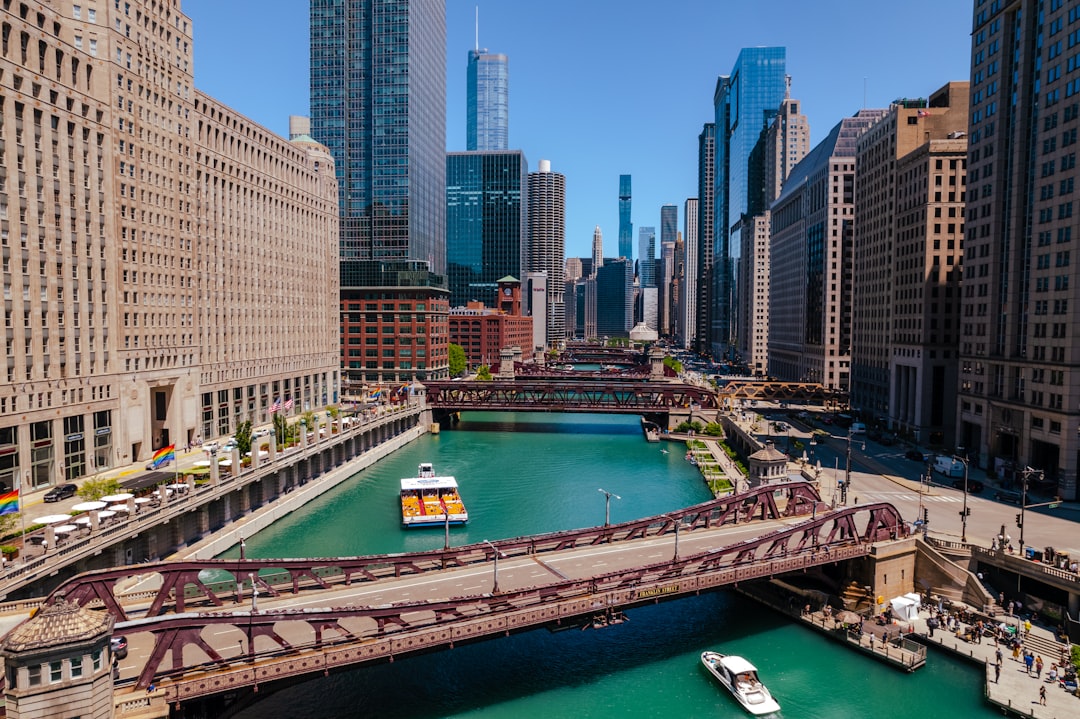Illinois has stringent telemarketing regulations, including the Do Not Call Law, which allows residents to opt-out of sales calls and mandates clear disclosures. Consumer advocacy groups have played a significant role in lobbying for stricter laws, including severe penalties for violators. "Do Not Call" lists give residents control over their communication preferences, protecting them from unwanted solicitations. Advocacy groups monitor complaints, expose violations, and collaborate with regulators to enhance protections. As technology evolves, these groups will need to adapt, focusing on transparency and consumer consent to maintain a fair telemarketing landscape in Illinois. For legal advice related to Do Not Call Lawyer Illinois, consult a qualified professional.
In Illinois, understanding telemarketing regulation is crucial for both businesses and consumers. This article explores the intricate web of laws and advocacy that shape the industry, focusing on how consumer protection efforts have evolved. We delve into the impact of advocacy groups in navigating the complex landscape, highlighting their role in shaping policies like Do Not Call lists. By examining these dynamics, we gain insights into future trends, ensuring Illinois’ telemarketing regulations remain balanced between business needs and consumer rights, with a special focus on the role of legal representation for Do Not Call cases.
Telemarketing Laws and Regulations in Illinois: An Overview

In Illinois, telemarketing activities are subject to various laws and regulations designed to protect consumers from deceptive or harassing practices. The state has specific rules in place to ensure fair and transparent marketing strategies, especially when it comes to phone sales and solicitations. One key piece of legislation is the Do Not Call Law, which gives residents the right to opt-out of unsolicited telephone marketing calls. This law restricts businesses from making automated or prerecorded telemarketing calls to individuals who have registered their numbers on the state’s Do Not Call list.
Additionally, Illinois has adopted the Telemarketing Act, which provides guidelines for legitimate telemarketers and holds accountable those engaging in illegal practices. The act mandates clear disclosure of the caller’s identity and purpose, ensures proper handling of consumer complaints, and regulates the use of recorded messages. These regulations play a vital role in advocating for consumers’ rights, ensuring they are not disturbed by unwanted calls and that any marketing efforts adhere to ethical standards.
The Impact of Advocacy on Telemarketing Practices

In Illinois, the impact of advocacy on telemarketing practices has been profound. Consumer advocacy groups and non-profit organizations have played a pivotal role in shaping the state’s telemarketing regulations. Their efforts have led to stricter Do Not Call Lawyer Illinois laws, ensuring residents’ privacy and peace of mind. Through lobbying and public awareness campaigns, these advocates have successfully pushed for measures that limit unwanted calls, enhance transparency, and provide consumers with more control over their contact information.
This advocacy has resulted in significant changes, such as the implementation of opt-out mechanisms and stringent penalties for violators. The influence of these groups has not only protected Illinois residents from intrusive telemarketing practices but also set a standard for other states to follow. Their continuous push for stronger regulations reflects a commitment to safeguarding consumer rights in the ever-evolving landscape of telemarketing.
Do Not Call Lists and Their Significance in Illinois

In Illinois, the implementation of “Do Not Call” lists is a significant aspect of telemarketing regulation aimed at protecting residents from unwanted phone solicitations. These lists are powerful tools that allow individuals to exercise their right to privacy and control over their communication preferences. The process involves registering phone numbers on state-maintained or industry-specific do-not-call registries, ensuring that telemarketers respect these designated “do not call” status. By becoming a registered member, Illinois residents can rest assured that they will be less likely to receive unsolicited calls from lawyers, financial advisors, or other businesses engaging in telemarketing activities.
The significance of Do Not Call Lists cannot be overstated, especially for those who frequently deal with legal or financial services-related calls. In Illinois, where privacy laws are stringent, these lists empower citizens to take an active role in managing their communication. With the assistance of technology, do-not-call registries facilitate a balance between businesses’ marketing efforts and consumers’ rights, ensuring that residents’ peace of mind is not invaded by excessive telemarketing calls from do not call lawyer Illinois or other services.
Advocacy Groups and Their Role in Protecting Consumer Rights

Advocacy groups play a pivotal role in protecting consumer rights, especially in the realm of telemarketing. In Illinois, where Do Not Call Lawyer regulations are stringent, these groups act as watchdogs to ensure businesses adhere to ethical practices. They monitor and investigate complaints from residents regarding unwanted phone calls, excessive marketing, or misleading sales tactics. By advocating for consumers, they bring attention to potential violations and work towards strengthening existing laws.
These advocacy organizations often collaborate with regulatory bodies to propose and implement changes that better protect Illinois residents. Their efforts are dedicated to fostering a fair and transparent telemarketing environment, ensuring that businesses respect consumer choices and privacy. Through legal actions, public awareness campaigns, and policy recommendations, they contribute to the ongoing regulation of telemarketing practices across the state.
Future Trends: How Advocacy Will Shape Telemarketing Regulation

In the ever-evolving landscape of telemarketing, advocacy plays a pivotal role in shaping regulations, especially in Illinois where “do not call” laws are stringent. As technology advances and communication channels expand, future trends indicate that advocacy groups will continue to push for stricter rules to protect consumers from unwanted calls. With the rise of automated systems and new marketing strategies, these organizations will need to adapt their approaches. One potential trend is an increased focus on transparency and consent, ensuring that consumers have control over how they are contacted.
Advocacy efforts might also extend to educating the public about their rights under existing regulations, leading to more proactive consumer behavior. As Illinois’ telemarketing laws evolve to address new challenges, advocacy groups will remain crucial in lobbying for changes that balance business interests with consumer protection. Their influence will be instrumental in creating a sustainable and fair environment for both consumers and businesses operating within the state’s regulatory framework.






